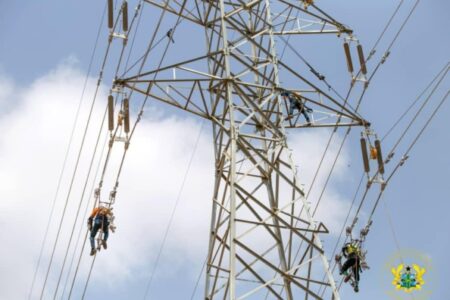The Japan Bank for International Cooperation (JBIC) has expressed interest in investing in Ghana’s energy transmission to contribute to electricity stability and engender productivity and economic growth.
Through semi-commercial loans, JBIC would support the financing of bankable projects, including the establishment of sub-stations as well as the provision of energy efficiency technology, which has worked in Japan to Ghana.
Other areas of interest to the bank include oil and gas, manufacturing, green projects, including automobiles, energy transition and clean cooking, and health infrastructure development.
Fukaya Satoko, Division Director, Energy and Natural Resources Finance Group, JBIC, disclosed this exclusively to the Ghana News Agency on the margins of the 2024 Africa Investment Forum (AIF) market days in Rabat, Morocco.
A lot of Japanese companies have a kind of high technology to stabilise electricity, especially for the transmission lines. We can finance these projects if the government is interested,” Satoko said.
She attributed the country’s capacity to make repayment, track record of coming out of crisis, and the need to expand the Bank’s reach in Africa as reasons for the interest to invest in Ghana.
The Ghana government has tried to build up some kind of track record in coming out of crisis, and we can rely on that to invest in the country and support economic growth,” she said.
At the 2024 Annual Meetings of the International Monetary Fund (IMF) and the World Bank Group (WBG), Dr Mohammed Amin Adam, hinted of the government’s willingness to allow private participation in the energy sector, which is faced with a US$1.9 billion financing gap.
If the government has the right policies, we are ready to collaborate and bring Japanese companies into the country and ensure that things are made possible,” said, Satoko.
She expressed optimism that a partnership between the government of Ghana, JBIC and Japanese companies would go a long way in reducing the energy sector challenges, and positioning, particularly, the electricity sector to support industrial growth.
